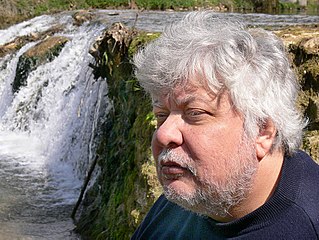Top 59 Tantra Quotes & Sayings
Explore popular Tantra quotes.
Last updated on April 14, 2025.
In the East, we have developed a science: if you cannot find a soul mate, you can create one. And that science is Tantra. To find a soul mate means to find the person with whom all your seven centers meet naturally. That is impossible. Once in a while, a Krishna and a Radha, a Shiva and a Shakti. And when it happens it is tremendously beautiful. But it is like lightning - you cannot depend on it. If you want to read your Bible, you can't depend on it that when the lightning is there you will read. The lightning is a natural phenomenon, but not dependable.
When? At this time, while you have all the opportunities, if you do not do your best to achieve the pure, stainless path to enlightenment when will you do it? If you don't meditate, don't practise the graduated path to enlightenment, especially bodhicitta, in this life, then when? When will you practise? When will you have this realization? If, in this life, you don't achieve renunciation, bodhicitta and sunyata, as well as the two stages of tantra, when will you? When will you have these attainments? When will you become enlightened? When will you perform perfect work for sentient beings?
These seven centers, these seven chakras Yoga and Tantra have talked about down the ages, are nothing but five knots in your body electric current. They can be changed; they can be rearranged. They can be given a new shape, form. Two lovers can be transformed so deeply that all their seven centers can start meeting.
The feeling of being alive and at One with everything is available through the path of Tantra. When your heart is open and you are making love, there is no separation between you, your partner and God. This is healing sex. This is connecting with the Divine. And the important thing to develop is the sense that this sacred experience is available in all instants. It is not limited to sex.
It is the movement between the negative and positive poles that creates electricity. It is the attraction between the male and the female that creates new life. The dynamics of the universe are dialectical, apparently in a conflict, but occurring within a larger context of unity and wholeness. This is the understanding of the Tantra vision.
There is no big mystery to Tantra. It is in the allowance and grace of the breath. Breathe easy and naturally and you will open the door to a sacred intent. With this sacred intent, love making becomes spiritual and holy. You open the gateway to total joy and you embrace the divine, erotic impulse. So breathe and relax. This is tantra.
A unifying factor between the different traditions and lineages of Tantra, is that it is feminine in nature. It acknowledges the feminine as the basis from which all the practices spring. Therefore, Tantra is by its nature, the understanding that all phenomenal existence, the universe, or cosmos, that we experience is feminine in nature.














